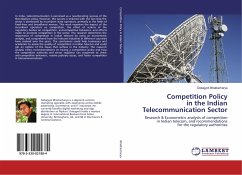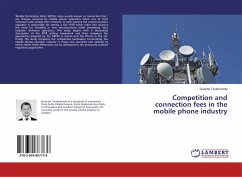In India, telecommunication is perceived as a reverberating success of the liberalisation policy. However, this success is tinkered with the fact that the sector is dominated by incumbent state operators, primarily in the fields of fixed-lines and broadband services. This work examines the impact of the incumbent operators on competition, the effect of actions of the regulatory bodies on competition, anti-competitive behaviors, and efforts made to promote competition in the sector. The research determines the importance of competition in Indian telecom by using an econometric analysis, and comprehend how the telecom industries in different countries have evolved over the years. The conclusions could help businesses and academics to assess the quality of competition in Indian telecom and could get an outline of the issues that surface in the industry. The research analysis offers recommendations on having a competition policy and how the competition authority and sector regulator can cooperate to check anti-competitive behaviors, resolve judiciary issues, and foster competition in telecommunications.
Bitte wählen Sie Ihr Anliegen aus.
Rechnungen
Retourenschein anfordern
Bestellstatus
Storno








